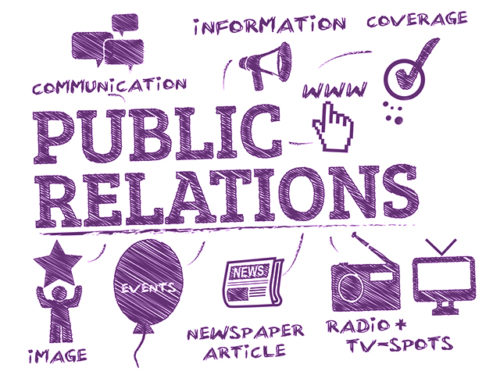Dignity PLC tell us it’s time to talk about quality and standards…

Well, well, well.
The people in the Dignity press department are having a busy summer. Two national newspapers have published findings from the recent report commissioned by the funeral giant that operates under ‘over 500 distinct local brands with varying levels of local brand equity’ (source Dignity Investor Presentation June 2018).
Here’s a line from the article in the Daily Mail: ‘Around a third of funeral directors belong to chains such as Co-operative and Dignity, which commissioned the report and are not criticised in it.’
Apart from the pretty poor grammar, this is hardly a world shattering revelation – if you pay to commission a report on the industry you are a big player in, you’re unlikely to be seeking to find criticism of your own practice. No, this report is clearly part of the strategy to position Dignity as the leading industry provider of facilities and standards of care for the deceased, and is part of their response to the perceived threat to market share and ongoing ‘volume erosion’. As outlined in the Investor Presentation, ‘the combination of increased price competition and more demanding consumers requires a new approach.’
(That and the calamitous fall in Dignity’s share price precipitated by last year’s investment report by Beyond perhaps?)
And from the article in The Guardian ‘None of the 75 funeral companies visited by anonymous researchers for the report allowed access to their mortuaries.’
Well, why would they? How were these 75 funeral companies approached, and by whom? Would you want the funeral director looking after a relative to let a journalist have access to the mortuary where your relative was being cared for?
For the record, we ask all companies applying for Good Funeral Guide accreditation whether they would be willing to let clients or potential clients see the facilities where dead people are cared for. All would, with varying stipulations to ensure the privacy of the people in their care. And we go and visit them ourselves to make sure that we’d be willing to have one of our relatives looked after by each company we recommend.
Anyway, that’s by the by. Back to the Dignity PR.
Unfortunately, the ‘Time to talk about quality and standards’ report cited in the press doesn’t appear to be in the public domain, so there’s no way of knowing details of how the findings reported in the press were arrived at. Suffice it to say, the intended result seems to have been achieved, with Dignity positioning itself as the voice of the righteous, campaigning against shocking standards of cowboy funeral directors and calling for strong regulation of the industry.
In a statement earlier this year, Dignity CEO Mike McCollum said “We will also continue to demonstrate industry leadership by seeking the regulated market that will be good for clients and society and which plays to our strengths as a compliant and well managed business.”
Hmm.
The regulated market that plays to Dignity’s strengths is not quite the shape of regulation that we’d like to see being implemented.
Regulation in the right form is something to be welcomed, but regulation that would impose stringent barriers to entry into the funeral market (as intimated by Dignity as being the preferred option) is something to be resisted at all costs if, as a society we want to have the freedom to choose bespoke, creative and emotionally intelligent people to help us look after our dead.
Dignity have been undergoing an operating review with the help of LEK Consulting, which has resulted in a 3 year transformation plan involving separating front of house (client facing staff) and back of house (funeral directors, funeral service operators) to enable ‘specialisation and efficiency gains’. The former are involved with ‘client meetings and funeral arrangement, in branch pre need sales and viewings of the deceased’, while the latter are responsible for the collection and ongoing care of the deceased and the delivery of the funeral on the day.’
‘Optimisation of network footprint’ is another aim – involving rationalising locations with low performance or highly overlapping catchments and changing the operating model from 120+ networks with 5 branches per network to 70 networks with 10+ branches per network, and centralising operations where appropriate, e.g. mortuaries and fleet.
Investors have been assured that the Group has concluded that a future outlook of stable, comparable market share should be achievable through a combination of service, price and promotion, the latter illustrated by a key phrase from the Investor Presentation regarding future branding – the intent is for ‘marketing to promote Dignity’s commitment to high standards of care, quality service delivery and competitive entry prices’.
So far, so slick.
Congratulations LEK Consulting. And undoubtedly a nice welcome for the newly appointed but as yet unannounced Transformation Director who has ‘significant experience driving organisational change at major UK retailers’ and who will sit on the Dignity Executive board and report directly to CEO Mike McCollum.
The key message of Dignity being the saviour of standards in the funeral industry has been planted.
Time will tell whether bereaved families will be persuaded by the highly polished Dignity PR campaign, or whether instead people will seek out personalised service from local, independent, flexible and intelligent small businesses. The type of businesses where they can meet the people who will collect and care for their relative, have personal contact day or night with the owner, and know that their dead person won’t be shipped off to a centralised mortuary miles away.
We await the findings of the Competition and Markets Authority market study into the funeral sector with interest. As, we are sure, do the powers that be at Dignity PLC.
Via Funeral http://www.rssmix.com/
Comments
Post a Comment